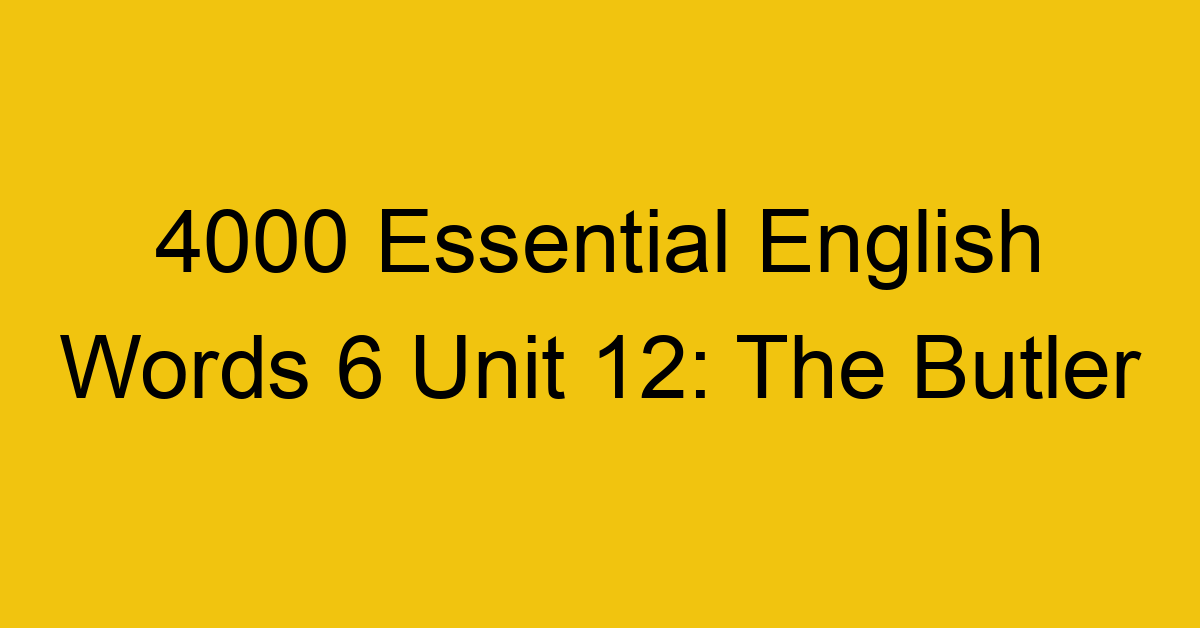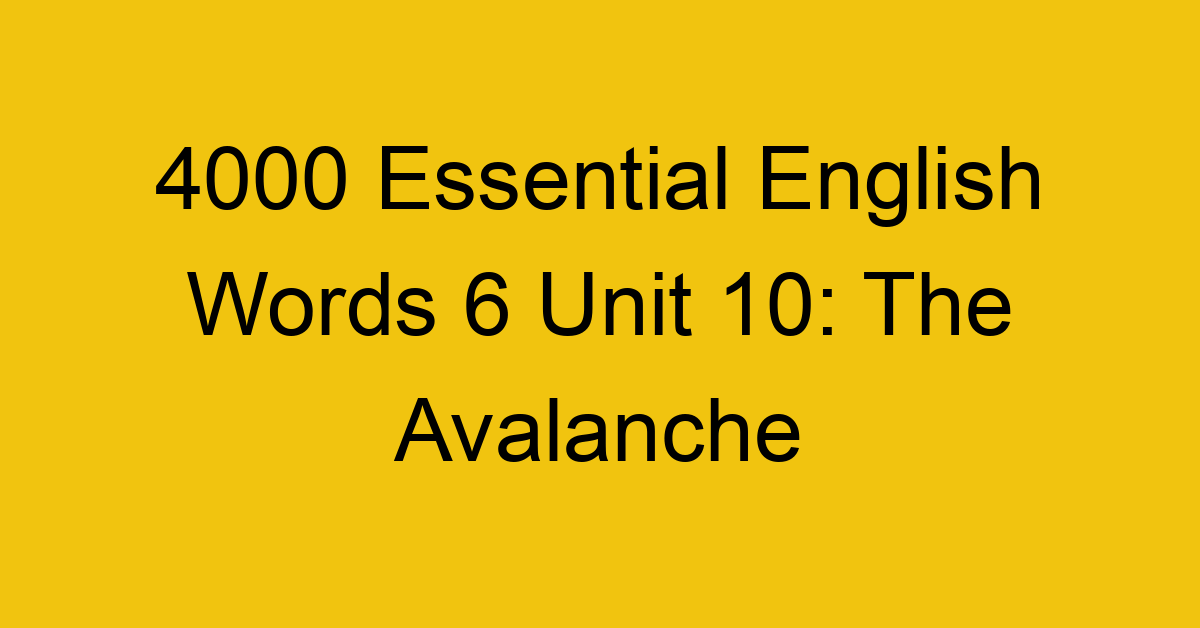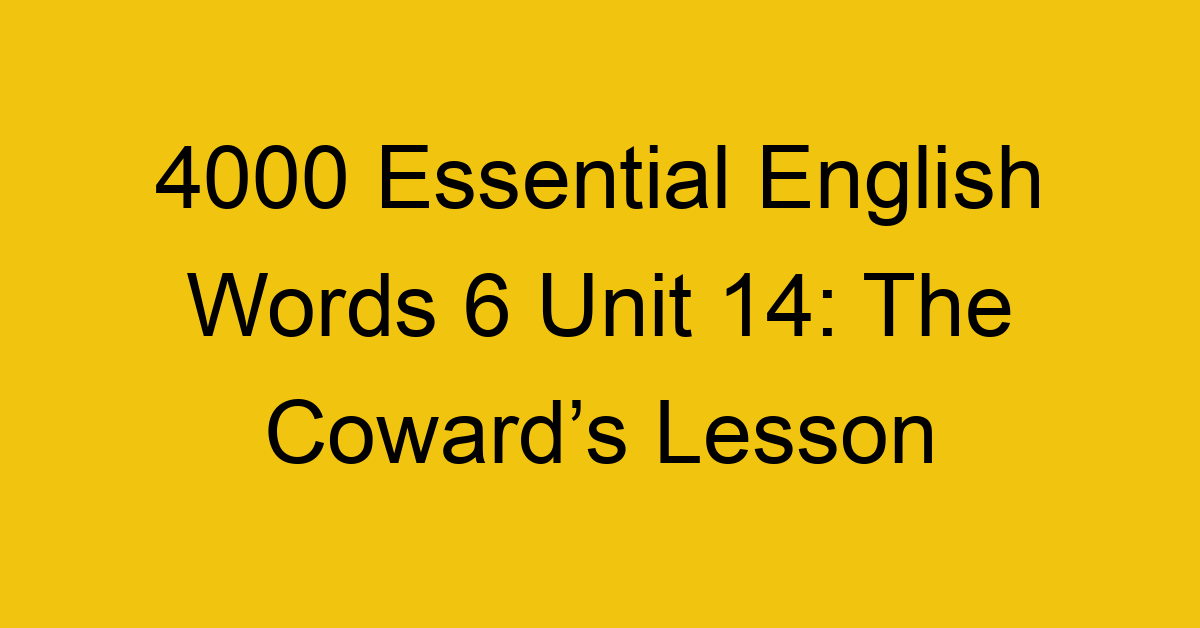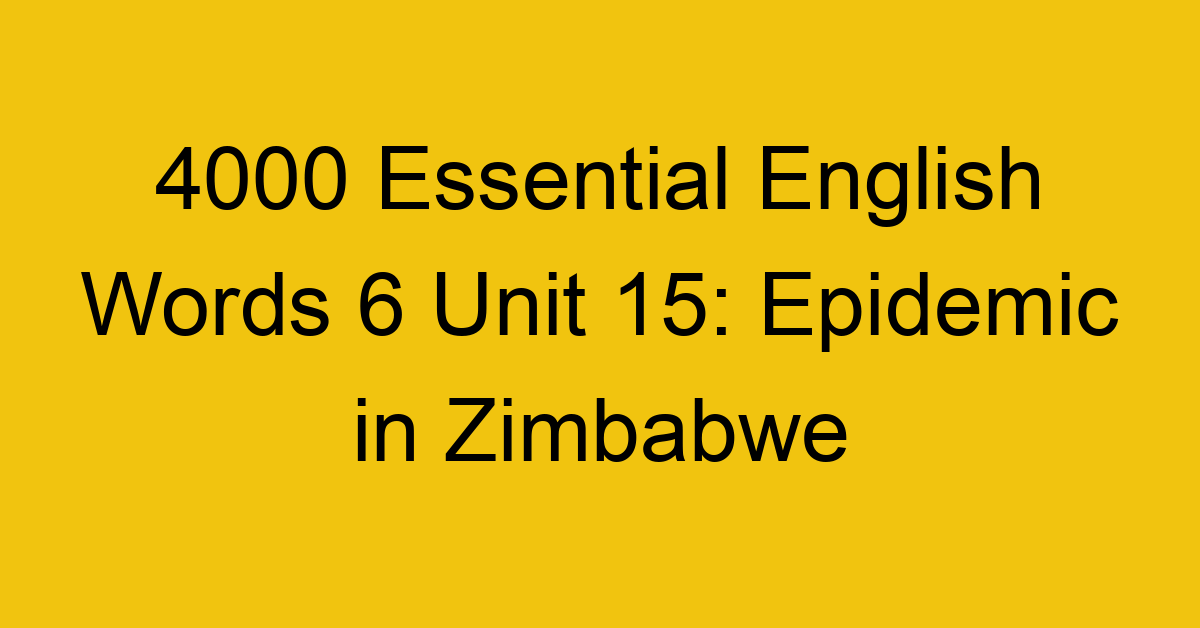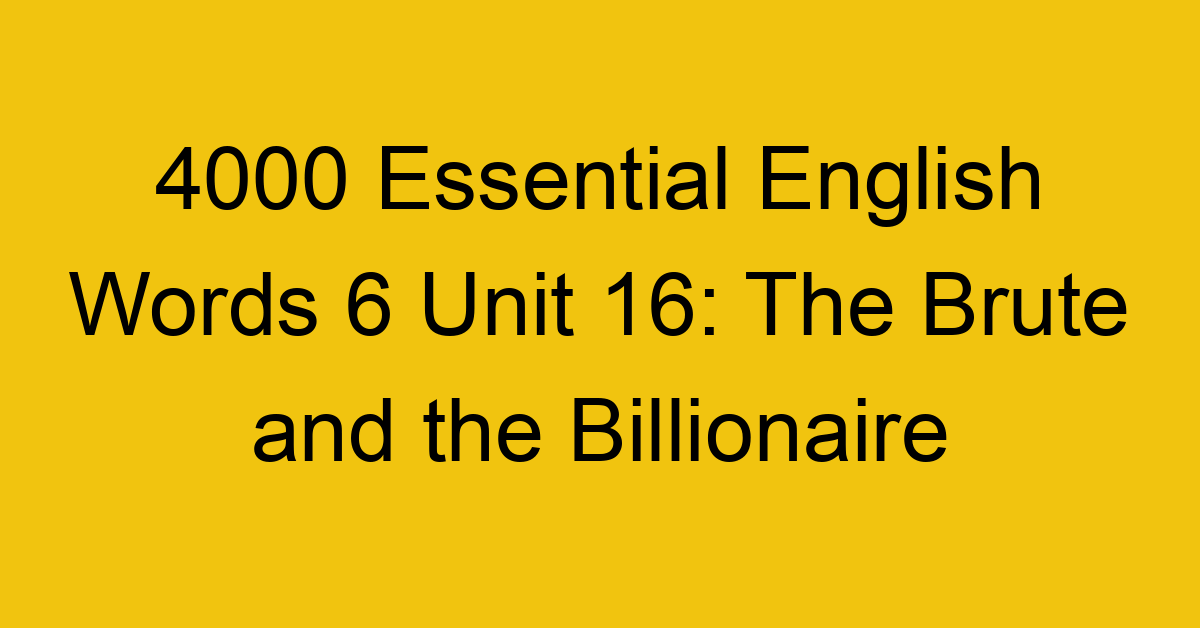4000 Essential English Words 6 Unit 13: The End of Smallpox
Word List
- certify [ˈsəːrtəfai] v.
To certify something means to confirm that its results are true.
→ The photograph on her passport certified that she was indeed Jolene Sawyer.
- collaborate [kəˈlæbəreit] v.
To collaborate means to work together on something.
→ When they collaborated, they managed to finish their chores early.
- compile [kəmˈpail] v.
To compile things means to collect a variety of them into a group.
→ She compiled a list of people who she wanted to attend her birthday party.
- counteract [kauntəˈrӕkt] v.
To counteract something means to act against it in order to reduce or stop it.
→ Medicine is supposed to counteract illnesses.
- curb [kəːrb] v.
To curb something means to prevent it from happening or increasing.
→ She curbed her anger by listening to a relaxing song.
- diagnose [ˈdaiəgnouz] v.
To diagnose someone means to identify the medical condition they have.
→ Several of the children were diagnosed with the flu.
- enact [iˈnækt] v.
To enact something means to make it into a law.
→ The council enacted a law that would only allow buses to drive downtown.
- federation [ˌfedəˈreiʃən] n.
A federation is a group of states or businesses working for a common cause.
→ The United Nations is a federation designed to prevent war, disease, and famine.
- gross [grous] adj.
If something is gross, then it is disgusting.
→ The food was so gross that the dog couldn’t eat it without feeling sick.
- humane [hjuːˈmein] adj.
If something is humane, then it is good and kind.
→ Helping build homes for poor people is very humane.
- intolerable [inˈtɒlərəbəl] adj.
If something is intolerable, then it is so bad that people cannot bear it.
→ The weather was so intolerable that I had to put on my warmest clothes.
- needy [ˈniːdi] adj.
If someone is needy, they are very poor.
→ After he lost his job, he became very needy.
- onset [ˈɒnset] n.
The onset of something unpleasant is the beginning of it.
→ At the onset of the battle, the enemy wasn’t prepared for such a large attack.
- pledge [pledʒ] v.
To pledge means to make a promise to do something.
→ Her mother pledged that she would find her daughter’s lost kitten.
- prohibit [prouhibit] v.
To prohibit something means to not allow it.
→ She prohibited the students from speaking until their work was done.
- rash [ræʃ] n.
A rash is an infected area of the skin with redness, bumps, itching, or dryness.
→ The new perfume left a horrible rash on my skin.
- render [ˈrendər] v.
To render something means to make it become something else.
→ His report was rendered unimportant by the release of new information.
- smallpox [ˈsmɔːlpɒks] n.
Smallpox is a disease that causes tiny bumps on the skin and high fevers.
→ When she saw the tiny bumps, she thought her son might have smallpox.
- transmit [trænsˈmit] v.
To transmit something means to pass it from one person or place to another.
→ The radio tower transmits a signal to all the radios in a 20-kilometer radius.
- vow [vau] v.
To vow means to make a promise to do something.
→ Before they are allowed to work, all senators must vow to never accept bribes.

